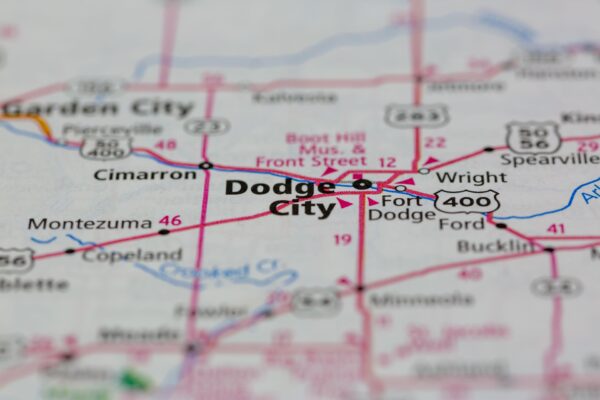ACLU of Kansas: Federal Court Allows Dodge City At-large Lawsuit to Move Forward to Trial
DODGE CITY, Kan. – A federal court has denied the City of Dodge City’s motion for summary judgment in a lawsuit challenging its at-large voting system. The case will now proceed to trial, beginning Feb. 24, 2024, in Wichita, Kansas, before Chief Judge Eric Melgren of the United States District Court for the District of Kansas.
The case centers on Dodge City’s at-large election system for the city commission. Dodge City, which is located in Ford County in southwest Kansas, is not divided into multiple voting districts. Rather, members of the commission are elected “at large,” meaning they are elected by voters from across the entire city. This system unlawfully dilutes the vote of Latine residents.
The plaintiffs’ legal team released the following joint statement:
“Dodge City’s at-large voting system is contrary to federal law, and works to dilute the political voices of its large Latine community. We are gratified the court has seen the significance of Dodge City’s maintenance of this unlawful scheme, and that our clients will have a chance to have their voices heard in court – an opportunity they have not had as voters. ”
The lawsuit, Coca v. City of Dodge City, was filed in December 2022 by the UCLA Voting Rights Project, ACLU of Kansas, American Civil Liberties Union, and Cleary Gottlieb Steen & Hamilton, LLP against Dodge City and its Commissioners, alleging violations of the Section 2 of the federal Voting Rights Act of 1965 and the U.S. Constitution’s 14th Amendment Equal Protection Clause.
Latine residents make up 65% of Dodge City’s total population, 59% of its voting-age population, and 46% of its citizen voting-age population. Despite growing quickly over time, the Latine population is underrepresented on the commission because the city’s white population has largely voted as a bloc against their preferred candidates. Expert analysis of elections from 2014 and 2022 provided to the court found clear evidence that Hispanic-preferred candidates receive significantly higher support in heavily Hispanic districts but perform poorly in heavily white districts, typically costing them the election.
Historically, at-large voting districts worked to reinforce suppression of racial minorities and the working class across the United States. Their impacts are seen in present-day inequalities in income and poverty, educational attainment, housing, health indicators, and other socio-demographic measures.
This press release is available online here.
The court's order is available here.
